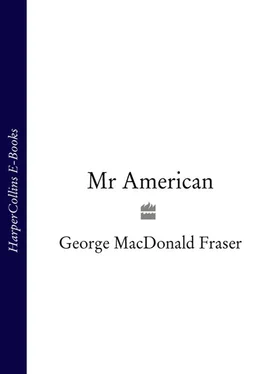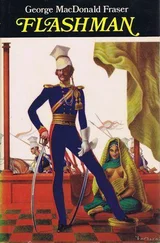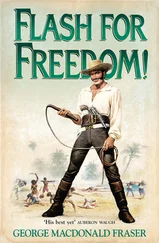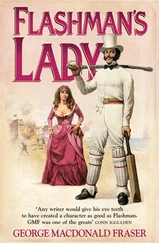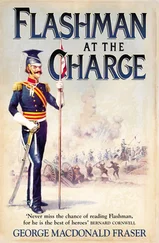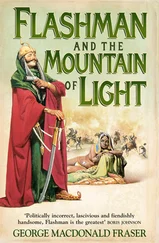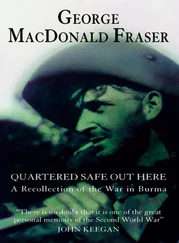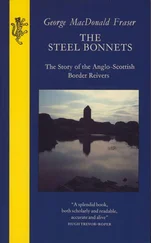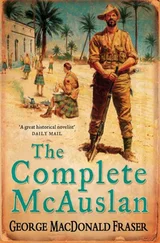The cab drew out of the quayside gates and up the long pier to the main street at the top, where the electric trams clanged and rumbled and a slow-moving stream of traffic, most of it horse-drawn, but with the occasional motor here and there, slowed the cab to a walk. The cabby noted that his fare was sitting forward, surveying the scene with the air of a man who is intent on drinking everything in, but giving no sign of whether he found it pleasing or otherwise. For the cabby’s money, central Liverpool was not an inspiring sight in any weather, with its bustling pavements and dirty over-crowded streets, and he was genuinely startled when after some little distance his passenger called out sharply to him to hold on. He was staring intently down the street which they were crossing, a long, grimy thoroughfare of chandlers” shops and warehouses; he was smiling, the wondering cabby noticed, in a strange, faraway fashion, as though seeing something that wasn’t there at all. He was humming, too, gently under his breath, as he surveyed the long seedy stretch of ugly buildings and cobbles on which the rain was beginning to fall.
“You want to go down there, sir?” the cabby inquired. “Takes us oot o’ the road to the Adelphi, like.”
“No,” said Mr Franklin. “Just looking.” He nodded at the street-sign, a plaque fixed high on the corner building. “Paradise Street.” And then to the cabby’s astonishment he laughed and sat back, quoting to himself in an absent-minded way:
As I was walking down Paradise Street,
Way-hay, blow the man down.
Thirty miles out from Liverpool town,
Gimme some time to blow the man down.
That had been Tracy’s song, Tracy the Irishman who had been a sailor. And there was Paradise Street itself, come on all unexpected, and nothing like the picture the song had conjured up when Tracy sang it, far from the sea. What had he imagined? Waving palms, blue water, sandy shores – and here were the cold grey stones of Liverpool’s sailortown. Very unexpected – but then England was sure to be full of unexpected, unimagined things. He became aware that the cabby, twisted round on his box, was viewing him with some concern; Mr Franklin nodded and gestured him to drive on.
A funny monkey, the driver decided; American interest in things English was, he knew from experience, liable to be eccentric, but Paradise Street …? Was this bloke one of those who might be enthused by a view of St George’s Hall, that startling showpiece of Liverpudlian architecture which they would see towards the end of their journey? Or if he didn’t care for mock Graeco-Roman temples five hundred feet long, would he respond to some useful information on the subject of the Walker Fine Art Gallery, with its striking sketch by Tintoretto and its portrait of Margaret de Valois, possibly by Holbein but more probably school of J. Clouet? The cabby, who had done his homework carefully for the benefit of tourists, stole another look at his fare’s impassive bronzed face and decided regretfully that he wouldn’t. Putting all hope of a substantial tip out of his head, he drove on to the Adelphi Hotel.
Here, he was rewarded with his shilling fare and another carefully-selected silver threepence, and Mr Franklin was escorted by porters into the luxurious marble and red plush interior of the lobby. He paused to survey the elegant little staircase leading to the main lounge, the mixed throng of affluent transit guests and local, no-nonsense business men in sober suits and watch-chains, the quiet efficiency of the Adelphi’s numerous hall staff – and was surveyed in his turn by the Irish head porter, who was as great an expert in his way as Inspector Griffin. No stick, no gloves, well-worn boots, and a decidedly colonial look to his clothing, the porter thought; his first question’ll be the price of a room.
“How much do you charge,” asked Mr Franklin quietly, “for a single room?”
“Four shillings and upwards, sir,” replied the porter. “That’s eighty cents in your own money,” and he favoured Mr Franklin with an avuncular smile, being one who had relatives in Philadelphia himself. “Just off the boat, sir? You’ll be ready for a bite of breakfast, then. In the coffee-room, sir; the gentlemen’s cloak-room is to your right. And the name, sir? Frank-lin, very good. Of –?”
“Ah … United States.”
“First-rate, sir. The boy will take up your luggage. You’ll be staying … two nights, sir. I see. Now, when you’ve breakfasted, if there’s any assistance I can give, you just inquire at my desk. Not at all, sir.” And as Mr Franklin hesitated, as though wondering whether to reach into his waistcoat pocket for another threepence, the porter generously solved the problem for him by turning to attend to an angular English lady, changing in that instant from a warm and genial father-figure into the respectfully impersonal butler to whom her ladyship was accustomed.
Mr Franklin left his cape and hat in the cloak-room, warily examined the array of flacons of lavender water, Hammam’s Bouquet, Mennen’s toilet powder, and Eno’s Fruit Salts laid out for exterior and internal refreshment, and compromised by washing his hands. He should have stayed over in New York, at the Belmont or the Clarendon, to get the feel of these places, but the city had been bursting at the seams for the Hudson-Fulton festivities celebrating the three hundredth anniversary of the former’s discovery of Manhattan, and the hundredth of the latter’s steam navigation; consequently, there had been no rooms to be had. Besides, he had had a vague desire to come fresh to England from where he had been; an odd ambition which he would have had difficulty in defining.
He ate an excellent breakfast in the cosy coffee-room, sitting at a little window table and watching the constant stream of traffic and pedestrians in the street outside. He deliberately ate slowly, conscious of a mounting feeling of excitement – which he found strange in himself, for he was not normally an excitable man. Then he returned to the lobby, and questioned the attentive porter.
“Guide books to London and East Anglia, sir? Sure, now I can get those for you. And a large-scale map of the county of Norfolk?” The porter’s eyebrows rose a fraction. “You’ll want the ordnance survey – yes, I dare say I can get that, too. It may take an hour or so, but if you’re going out … you are, for a look at the town. Capital, sir.”
Mr Franklin thanked him, and set off to tour the city on foot, content to walk at random, watching and listening, standing on street corners to observe the passing crowds, trying to accustom his ear to the strange, soft mumbling accent of the Liverpudlians, observing the magisterial police on traffic duty, spending five minutes listening to an altercation between a stout woman and a street trader, riding on an electric tram and on the famous overhead railway, and generally presenting the appearance of an interested wanderer absorbing the sights and sounds around him.
He lunched in a public house off soup and sandwiches, washed down by a pint of heavy dark beer which he found rather cloyingly sweet, spent another couple of hours in apparently aimless strolling, and returned to the Adelphi as dusk was falling. There he dined, and after calculating that the five shillings, or one dollar, which the dinner cost, still left him with a comfortable balance from the ten dollars which, the Mauretania’s purser had assured him, was all that a first-class traveller need spend per day in England, retired to his room.
Here the guide books which the porter had obtained were waiting for him, but he ignored them in favour of the large ordnance survey map of Norfolk, which he spread out on the bed and began to examine with close attention. For half an hour he pored over it, the dark face intent as he traced over the fine print and symbols denoting such detailed items as railway cuttings, plantations, marshes, forest paths, churches with spires (and with towers), historic sites, and the like, and the quaint, pastoral place-names, Attleborough, Sheringham, Swaffham, Methwold, and Castle Lancing.
Читать дальше
